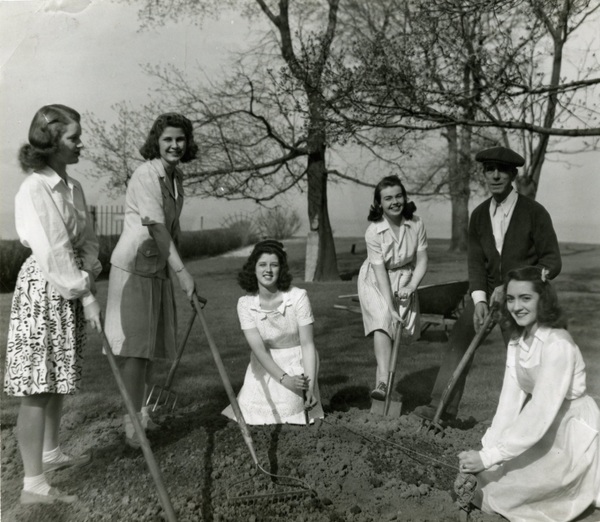1940s: Unity and Patriotism
World War II influenced the world's culture throughout the 1940s, and Chicago was no exception. In addition to providing industrial assistance to the war effort, the Great Lakes Naval Training Station provided boot camp for a third of those who served in the U.S. Navy, and Fort Sheridan became an important army training facility. Loyola and Mundelein did their parts for the war effort as well. Two-thirds of Loyola's student population served in the military, and the school itself was the site of a plethora of training opportunities to prepare young men and women for active duty. Loyola also provided early flight training and was an important location for medical and dental training. Mundelein students participated in “Homefront” activities, such as sending cakes and other comforts to soldiers, but they also opened an American Red Cross college unit. Both schools sponsored training in map reading, first aid, Morse code, and many other areas of knowledge that could help them benefit the war effort. These students, like so many others, answered the call to support their country both at war and at home.
- Click on underlined headlines to access further information.
- To view more information about the media, click on the text on the bottom right of the image. A new page will open up.
- Scroll to the bottom of the new page and click on the thumbnail for a close-up of the image.
- Click here to view all the media from this decade.

